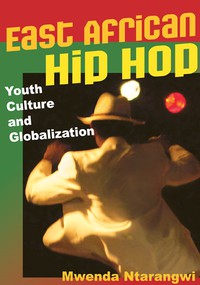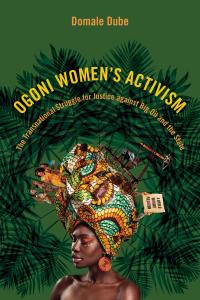
Reversed Gaze
Cloth: 01/01/2010
About the Book
Deftly illustrating how life circumstances can influence ethnographic fieldwork, Mwenda Ntarangwi focuses on his experiences as a Kenyan anthropology student and professional anthropologist practicing in the United States and Africa. Whereas Western anthropologists often study non-Western cultures, Mwenda Ntarangwi reverses these common roles and studies the Western culture of anthropology from an outsider's viewpoint while considering larger debates about race, class, power, and the representation of the "other." Tracing his own immersion into American anthropology, Ntarangwi identifies textbooks, ethnographies, coursework, professional meetings, and feedback from colleagues and mentors that were key to his development.Reversed Gaze enters into a growing anthropological conversation on representation and self-reflexivity that ethnographers have come to regard as standard anthropological practice, opening up new dialogues in the field by allowing anthropologists to see the role played by subjective positions in shaping knowledge production and consumption. Recognizing the cultural and racial biases that shape anthropological study, this book reveals the potential for diverse participation and more democratic decision making in the identity and process of the profession.
Reviews
"An intriguing book. . . . Highly recommended."--Choice"A timely and welcome piece."--Anthropology Review Database
"By overtly coupling methodology, practice, reflexivity, and theory, Ntarangwi emphasizes the discipline's tenets of holistic, long-term community engagement ideally suited to provide cultural competency, which goes a long way in demonstrating professional relevancy."--African Studies Quarterly
Blurbs
"Ntarangwi fills a huge gap in the burgeoning reflexive literature in anthropology, which has been predominately produced by Westerners. Eminently accessible and engaging, this book demonstrates that critique need not be a destructive exercise."--Faye V. Harrison, author of Outsider Within: Reworking Anthropology in the Global Age
"A novel ethnography of the contemporary United States, a critical call for new anthropology, and a much-needed critique of the anthropology field. Showing flashes of humor, regular reflexivity, and approachability, this book engages practicing anthropologists as well as aspiring professionals."--C. Richard King, author of Sport in the Pacific: Colonial and Postcolonial Consequences
"This book is a welcome perspective on the increasingly penetrating debates over 'voice,' 'agency,' 'space,' and issues of identity, multiculturalism, and globalization that rend the academy. It is an exceptional work of anthropology, whose contextual sweep and articulateness provide an invigorating intellectual method that steers away from the snares of textbook and disciplinary types of approaches of past anthropological works on Africa that were predicated on 'diminishing cultures' needing to be recuperated. It makes us rethink our conceptions about studying others and how we can recuperate knowledge and negotiate silences."--Maurice Nyamanga Amutabi, author of The NGO Factor in Africa: The Case of Arrested Development in Kenya
"In this captivating intellectual biography of his training and career as an anthropologist, Ntarangwi turns a searing ethnographic gaze on the discipline and its practitioners. It is a critique that is as sharp as it is lively, full of insights and irreverent observations on the foibles of the anthropological tribe. It raises disturbing questions about anthropology's enduring analytical and political blind spots, its continued fetishization of the colonial and postcolonial other, and the incapacity of many western anthropologists to engage in true self-reflexivity and examine their own societies."--Paul Tiyambe Zeleza, author of Manufacturing African Studies and Crises






